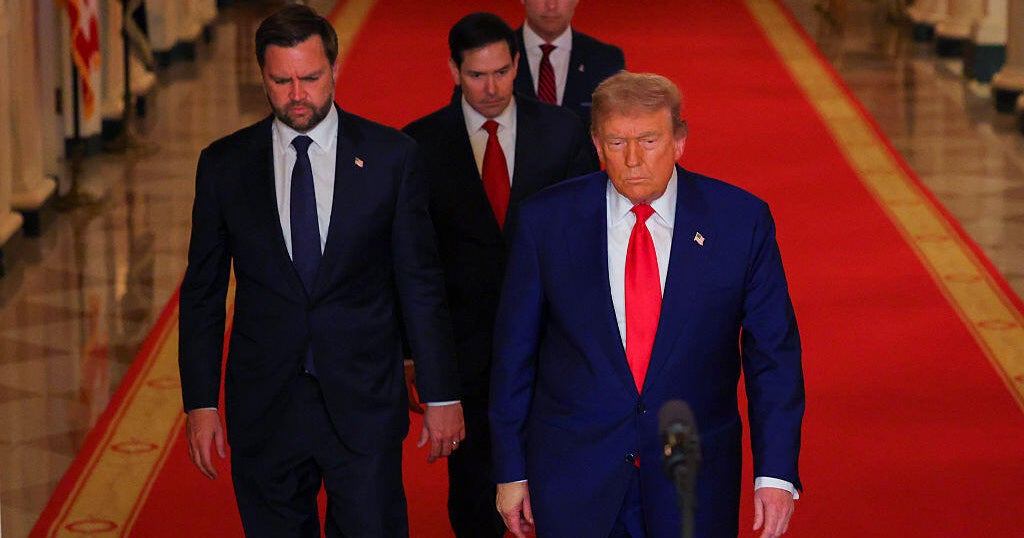Congress Grapples with War Powers Amidst Trump's Decisive Iran Strike

The recent military action ordered by President Donald Trump against Iran has ignited a fervent debate within Congress, highlighting deep-seated divisions over the scope of presidential war powers. This decisive strike, which has reverberated through the halls of power in Washington, underscores the perennial tension between the executive branch and legislative oversight concerning military engagements.
In the aftermath of the strike, congressional leaders find themselves at a crossroads, grappling with the constitutional implications of unilateral military action. The strike has prompted a renewed scrutiny of the War Powers Resolution, a legislative measure intended to check the president's ability to engage in hostilities without congressional consent. This incident has reignited calls from some lawmakers for a more assertive congressional role in decisions of war and peace, reflecting a broader concern about the erosion of legislative authority in matters of national security.
Key figures in Congress have voiced contrasting views on the president's actions. Some members, particularly those aligned with the administration, argue that the strike was a necessary and justified response to imminent threats, emphasizing the president's prerogative to act swiftly in defense of national interests. Conversely, critics within the legislative body have raised alarms about the potential for escalation and the lack of a clear, coherent strategy in the region. These divergent perspectives underscore the complex dynamics at play, as lawmakers navigate the intricate balance between supporting decisive action and ensuring accountability.
The implications of this strike extend beyond the immediate political landscape, touching upon broader questions of international relations and U.S. foreign policy. The move has not only strained diplomatic ties but also raised concerns about the potential for further destabilization in an already volatile region. As Congress deliberates on the appropriate response, the broader geopolitical ramifications of this action remain a focal point of discussion, with lawmakers weighing the potential consequences for global security and America's standing on the world stage.
As the debate unfolds, the issue of war powers continues to serve as a litmus test for the broader constitutional balance of power. The outcome of this discourse will likely have lasting implications for the future of U.S. military engagements, shaping the contours of executive-legislative relations in the years to come. In this critical moment, the nation watches closely as its leaders chart a course through the complex terrain of modern warfare and governance.
🔮 Fortellr Predicts
Confidence: 75%
The recent ceasefire announcement by Donald Trump between Israel and Iran is likely to reduce immediate tensions, but underlying geopolitical frictions remain. Historical patterns suggest that while temporary halts in hostilities offer a reprieve, the lack of formalized and comprehensive agreements may lead to resumed conflicts in the future, particularly if any party perceives strategic disadvantages or violations of the ceasefire terms. The bipartisan pressure in the U.S. Congress to enforce the War Powers Resolution reflects a significant push to reclaim legislative oversight over military engagements, echoing post-Vietnam shifts and later conflicts where Congress sought similar control. Despite Trump's announcement, skepticism within Congress and the absence of formal acknowledgment from Israel and Iran suggest diplomatic complexities persist, potentially creating fluctuating tensions. Internationally, the ceasefire's durability will hinge on strategic calculations by regional actors and the extent of diplomatic engagements facilitated by major powers like the U.S., Russia, and China. Economically, any sustained increase in regional stability could positively impact global markets, particularly oil prices, though this will depend heavily on the ceasefire holding and subsequent de-escalation measures. Conversely, renewed conflicts could lead to significant disruptions, with global energy markets becoming highly volatile. Internally in the U.S., the Trump administration's decision to bypass Congress in these strikes is setting a precedent that could be challenged in the courts, questioning the balance of powers and setting a stage for a broader debate on military authority and executive power. Ultimately, the situation seems poised for a temporary calm, but systemic issues and historical precedents suggest that underlying tensions could reignite unless robust diplomatic interventions are established.